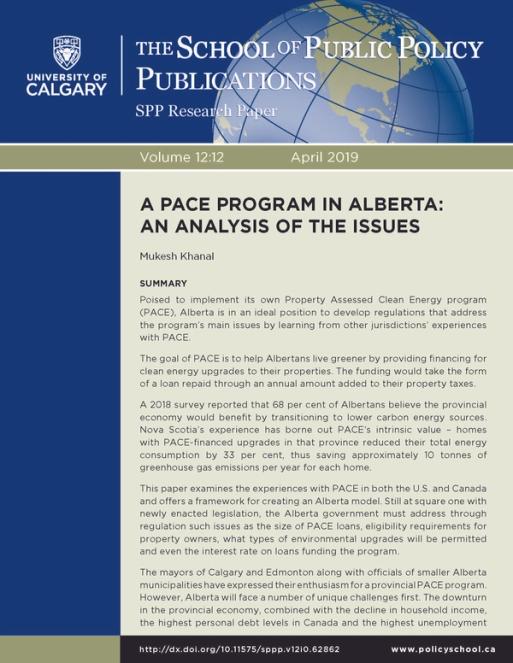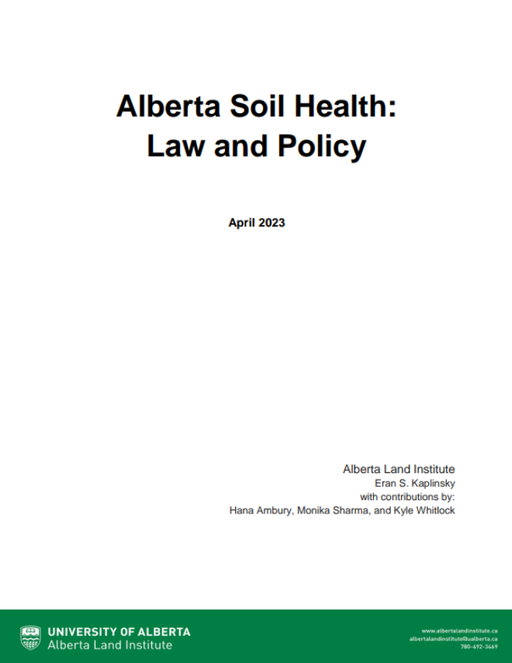A PACE Program in Alberta: An Analysis of the Issues
By University of Calgary, School of Public Policy

Poised to implement its own Property Assessed Clean Energy program (PACE), Alberta is in an ideal position to develop regulations that address the program’s main issues by learning from other jurisdictions’ experiences with PACE.
The goal of PACE is to help Albertans live greener by providing financing for clean energy upgrades to their properties. The funding would take the form of a loan repaid through an annual amount added to their property taxes.
A 2018 survey reported that 68 per cent of Albertans believe the provincial economy would benefit by transitioning to lower carbon energy sources. Nova Scotia’s experience has borne out PACE’s intrinsic value – homes with PACE-financed upgrades in that province reduced their total energy consumption by 33 per cent, thus saving approximately 10 tonnes of greenhouse gas emissions per year for each home.
This paper examines the experiences with PACE in both the U.S. and Canada and offers a framework for creating an Alberta model. Still at square one with newly enacted legislation, the Alberta government must address through regulation such issues as the size of PACE loans, eligibility requirements for property owners, what types of environmental upgrades will be permitted and even the interest rate on loans funding the program.
Published
2017
Project
Topic
Contributor

University of Calgary, School of Public Policy
Focusing on the fundamentals of policy development, analysis and implementation, courses develop both theoretical understanding and hands-on application with a focus on developing skills in quantitative and qualitative analysis, oral and written communication, and effective teamwork. Elective courses and an independent capstone offer the opportunity to deepen understanding of one policy area.


